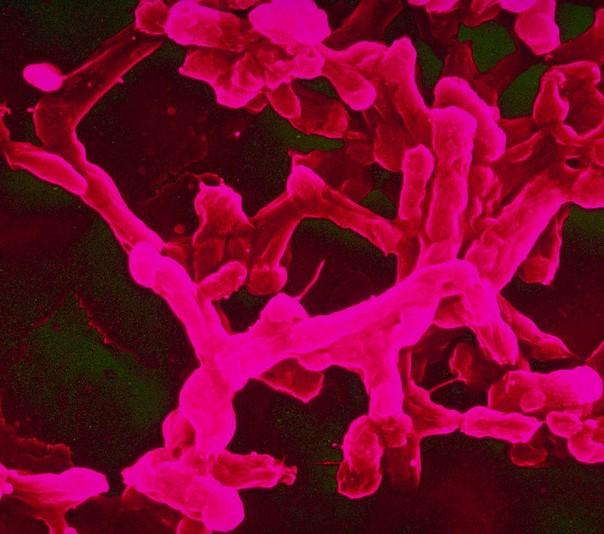The Centers for Disease Control and Prevention (CDC) says that it has identified nine US cases of extensively drug-resistant (XDR) typhoid fever that aren't linked to travel.
The news came in a Health Advisory issued late last week by the CDC, which said that, as of Jan 14, it has received 71 reports of XDR typhoid infections in the United States dating back to 2018, when surveillance for the pathogen began. Of the 67 patients with a travel history, 58 reported travel to Pakistan in the 30 days before their illness began. Nine patients from six states reported no travel to Pakistan or any other country.
Case reporting for 2020 is not yet complete, the agency said, and the investigation is ongoing.
Resistance to five antibiotic classes
XDR typhoid is caused by a strain of the bacterium Salmonella enterica serotype Typhi that is resistant to at least five antibiotic classes recommended for treating typhoid fever.
An ongoing outbreak of XDR Typhi that emerged in Pakistan in 2016 has caused more than 5,200 infections in that country, and infections among travelers to Pakistan have been reported in the United States, United Kingdom, Canada, Denmark, and Australia. The outbreak led the CDC in September 2019 to issue a level 1 travel alert for people traveling to Pakistan.
The nine cases reported by the CDC appear to be the first reported US cases of XDR typhoid with no history of travel to Pakistan. Three patients are from New York and two are from California, with Minnesota, Maryland, New Jersey, and Texas each reporting one case.
Specimens from the nine patients were obtained from Nov 7, 2019, through Nov 16, 2020. Susceptibility testing of patient isolates showed a similar resistance patterns to XDR Typhi samples from Pakistan.
The CDC said it has not identified any linkages among the patients or a common source of infection.
Typhoid fever is spread through contaminated water and food and person-to-person contact. The CDC and the World Health Organization have warned that the risk of acquiring XDR typhoid in Pakistan is high because of insufficient access to clean water, along with poor sanitation and hygiene.
The circulating strain of XDR Salmonella Typhi that emerged in Pakistan belongs to the H58 haplotype, which is common in part of Asia and Africa. H58 strains are commonly resistant to the first-line antibiotics for typhoid fever treatment—chloramphenicol, ampicillin, and trimethoprim-sulfamethoxazole—and in Pakistan have also shown increasing resistance to ciprofloxacin.
But the cases of typhoid fever that began to emerge in the Hyderabad district of Sindh province in November 2016 were additionally resistant to ceftriaxone, which is frequently used for empiric treatment, and even more difficult to treat. A 2018 study by British and Pakistani scientists found that the XDR Salmonella Typhi strain in Pakistan harbored a mobile ceftriaxone-resistance gene.
The CDC has also identified a genetically distinct strain of ceftriaxone-resistant typhoid linked to travel to Iraq, with three cases reported since 2018. Before these strains emerged, no cases of ceftriaxone-resistant typhoid had been reported in the United States.
The agency is advising clinicians to obtain a 30-day travel history from all patients with suspected or confirmed typhoid fever, order antimicrobial susceptibility tests for Typhi isolates, and consider treating patients empirically with azithromycin or a carbapenem if they traveled to Pakistan or Iraq or did not travel outside the United States. Local health departments are urged to notify their state health department about any cases of typhoid fever in patients who did not travel outside the United States in the 30-days before the illness began.
People who travel to Pakistan or other parts of the world where typhoid fever is common are advised to get vaccinated and follow safe eating and drinking practices.

















